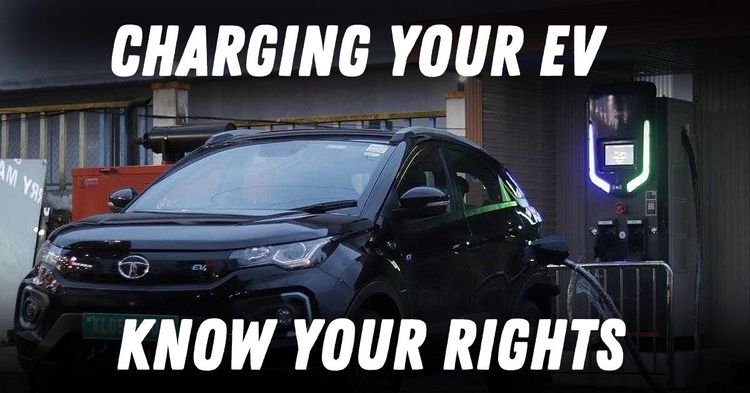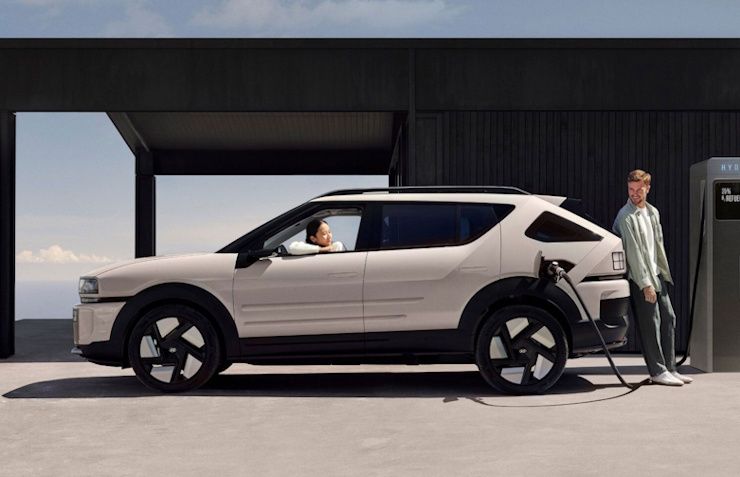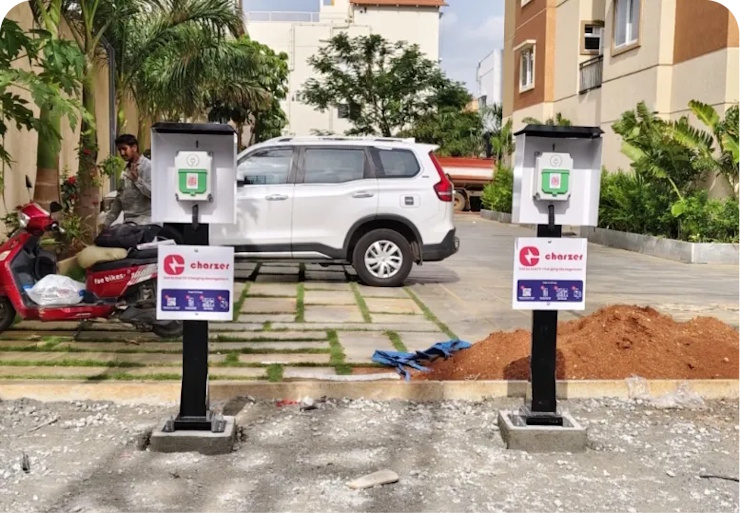Government To Housing Societies: Don't Stop Residents From Installing EV Charging Points At Their Parking Slots



When Amit bought his first electric car, he imagined a future of smooth, silent drives and guilt-free commutes. But the excitement quickly faded. The real challenge began not on the roads, but right at home, in his apartment complex. Like many EV owners, Amit faced resistance from his housing society when he tried to install a charging point at his own parking slot. The society insisted he use only their expensive, often unreliable, community charger. When he plugged his car into his flat’s power supply, he was slapped with a hefty fine and threats of more penalties. Amit’s story is not unique—but the tide is turning, and the law is now firmly on the side of residents like him.
For most EV owners, charging at home is not a luxury—it’s a necessity. Public charging stations are still few and far between, and relying on them means planning every trip around their availability. Home charging, especially overnight, is cheaper, more convenient, and ensures the car is always ready for use. For apartment dwellers, the designated parking slot is the most logical and secure place to set up a private charging point.

Recognising the growing friction between residents and housing societies, the Ministry of Power issued clear and comprehensive guidelines in September 2024. These guidelines are unambiguous: residents in group housing societies, apartment complexes, and similar communities have the right to install private EV charging stations in their own designated parking spaces. The guidelines apply across the board—to all housing societies, RWAs, and group housing complexes, whether newly built or decades old.
The government’s intention is clear. It wants to drive EV adoption by making charging safe, reliable, and accessible for everyone. The guidelines stress that societies cannot create hurdles or impose arbitrary conditions on residents wishing to install charging points. In fact, the rules specifically require distribution companies to ensure electricity supply to private charging points based on the consumer’s choice. Residents can use their existing domestic connection or request a new, separately metered connection with a dedicated EV charging tariff.
• Private Charging Allowed: Any resident can install a private EV charging station in their own parking slot, provided it is safe and follows basic electrical norms. • Use of Existing Connection: Residents can charge their EVs using their current domestic electricity connection. If their charging needs exceed the sanctioned load, they simply need to apply for an increase—no special permissions from the society are required. • No Extra Fees or Fines: Societies cannot impose fines, clamp vehicles, or force residents to use only community chargers. Residents pay regular domestic electricity rates for charging at home. • Community Charging Is Optional: While societies can set up community charging stations for shared use, they cannot make these mandatory or restrict residents from setting up their own chargers. • Support from Power Companies: Distribution companies must cooperate and provide the necessary infrastructure for private charging, ensuring timely installation and supply.
If you’re facing resistance from your society, you now have the law on your side. Start by informing your RWA or society management about the latest government guidelines. Share a copy of the official notification if needed. Make sure your installation is done by a qualified electrician and follows safety standards. If your society still refuses, you can approach your local electricity distribution company or consumer forum for help.
The government’s move is a major relief for thousands of EV owners across India. It removes a key obstacle for those living in apartments and group housing societies, making it far easier to embrace electric mobility. For buyers considering an EV, this clarity means one less worry—charging at home is no longer a privilege, but a right. Housing societies must now adapt and support the transition, ensuring that residents like Amit can charge their cars without fear of fines, arguments, or inconvenience. The message is clear: the future is electric, and every resident deserves the freedom to charge their vehicle at home, in their own parking slot. The law now guarantees it.